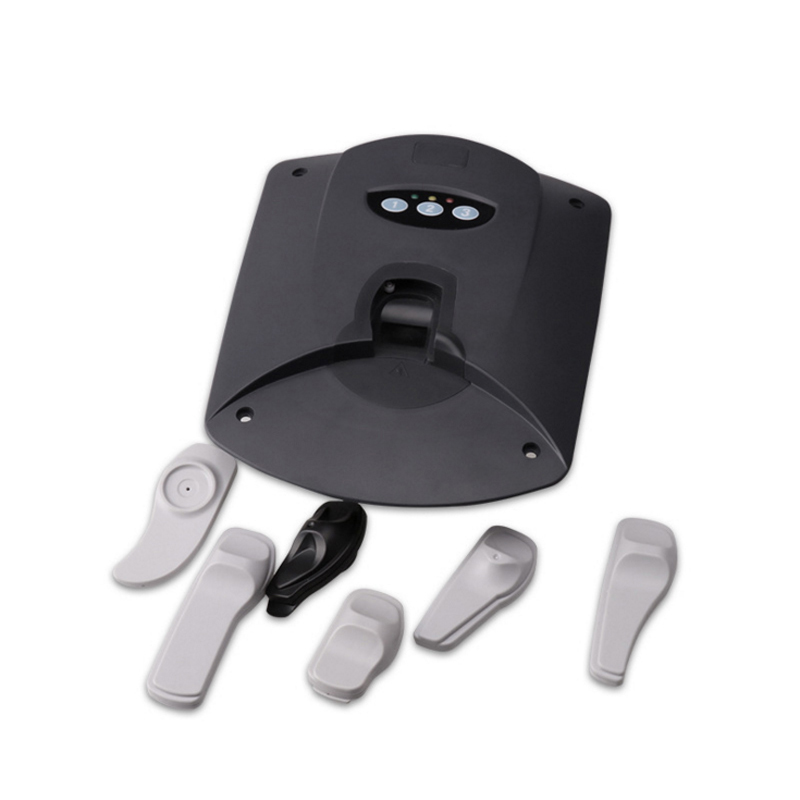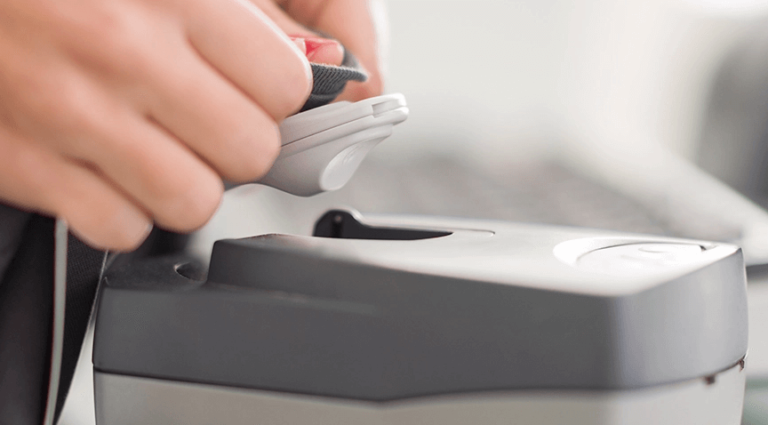Have you ever walked out of a store, and suddenly, the alarm goes off, making everyone look at you? I’ve been there too! Imagine this: I was shopping happily in a mall, bags in hand, excited to go home. But as I reached the exit, the alarm blared loudly. It was so embarrassing!
But here’s the thing: I didn’t steal anything. I was a victim of something called “false shop alarms.” It happens to many people.
There are some reasons why you may keep setting off shop alarms
- Active security tags or labels on purchased items
- Interference from electronic devices (e.g., smartphones)
- Variations in store alarm system sensitivity settings
- Human errors, such as improperly deactivated tags at checkout.
Understanding Shop Alarms

Shop alarms, often referred to as anti-theft systems, serve as a vital component of modern retail security. These systems are primarily designed to protect businesses from theft and shoplifting, but understanding how they work is crucial, especially when false alarms occur.
When you approach the exit of a store, you may notice small sensors installed near the doorways. These sensors are sensitive to specific signals emitted by security tags or labels attached to merchandise within the store. When a sensor detects an active security tag, it triggers an alarm, alerting store personnel to potential theft. While this is the primary purpose of these systems, it’s important to realize that shop alarms aren’t always infallible. False alarms can and do happen, causing confusion and anxiety for shoppers.
The sound of an alarm can be unnerving, but it’s essential to remember that setting off a shop alarm doesn’t necessarily imply wrongdoing. In many cases, it’s simply a matter of innocent circumstances aligning in a way that activates the sensor.
Common Triggers for False Alarms
False shop alarms can be quite common and are often triggered by innocent actions. One of the most frequent culprits is the presence of other active security tags or labels within your shopping bags. These tags can sometimes confuse the sensor system, leading to an unexpected alarm.
Additionally, static electricity can be a surprising trigger. If you’ve ever felt a small shock when touching a metal object, you’ve experienced static electricity. This phenomenon can disrupt the sensor’s function, making it go off even if you haven’t taken anything.
However, don’t let these common triggers discourage you from shopping; they are usually easily preventable. By understanding these triggers and taking some precautions, you can significantly reduce the chances of setting off a false alarm during your shopping trips.
Clothing Tags and Security Measures
A closer look at your clothing might reveal small, inconspicuous tags designed to deter theft. These clothing tags often contain security features such as magnetic strips or RFID (Radio-Frequency Identification) chips. While they play an essential role in protecting garments from theft, they can also contribute to false alarms.
One primary reason for this is that these tags need to be deactivated at the checkout counter, typically by running them over a deactivation pad. However, if this deactivation process isn’t done correctly or if the tag malfunctions, it can remain active and trigger an alarm when you leave the store.
The presence of these tags and ensuring they are correctly handled during your purchase can prevent unnecessary alarm-related stress. So, next time you’re shopping for that perfect outfit, don’t be surprised by the tiny tags – they’re there to protect your purchase, not to cause any inconvenience.
Electronic Interference
In our increasingly connected world, electronic devices are ubiquitous. Smartphones, tablets, and wearable technology like smartwatches emit electromagnetic fields, commonly referred to as electromagnetic interference (EMI). These fields can occasionally interfere with shop alarm sensors.
When you pass through the sensor area with such devices, the electromagnetic interference can create confusion, resulting in a false alarm. It’s important to note that EMI from personal electronics is typically harmless but can cause temporary inconvenience.
Therefore, it’s wise to keep your electronic devices separate from the sensors when exiting a store to avoid triggering false alarms. It’s a simple precaution that can make your shopping experience more seamless and less stressful.
Sensitivity Settings
One crucial aspect of shop alarm systems that often goes unnoticed is their sensitivity settings. These settings can vary significantly from one store to another, depending on the security measures and merchandise they carry.
Some stores opt for highly sensitive sensors to maximize security, while others may use less sensitive settings to minimize false alarms. This variation in sensitivity levels can lead to inconsistencies in alarm triggering. In other words, what sets off an alarm in one store may not do so in another.
This variation is essential to keep in mind, as it highlights the complexity of shop alarm systems and why false alarms occur. Understanding that sensitivity settings can differ helps explain why a seemingly similar situation may result in a different outcome in different stores. So, when you’re out shopping, be aware that not all alarm systems are the same, and false alarms can happen due to these variations.
Human Error
Sometimes, false alarms boil down to human error, a factor that plays a significant role in the occasional triggering of shop alarms. Store employees, while well-trained, can occasionally forget to deactivate security tags. This forgetfulness may result from the rush of a busy day or other distractions.
Similarly, cashiers might inadvertently miss removing security tags during the checkout process, especially when dealing with numerous items. These human mistakes can lead to customers unknowingly triggering alarms when they exit the store. Most often, store employees are more than willing to assist in resolving the issue, ensuring your shopping experience concludes without undue stress.
Preventing False Shop Alarms
Preventing false shop alarms is not only about understanding their causes but also about taking proactive measures to avoid them. To reduce the likelihood of setting off an alarm, it’s essential to be aware of your surroundings and the items you’re carrying. Regularly checking your bags for any missed security tags, stickers, or labels and ensuring they are properly deactivated can significantly decrease the chances of triggering alarms.
Moreover, avoiding carrying active electronic devices close to the sensors is another smart move. While it may be tempting to keep your smartphone in your pocket as you exit the store, this proximity to the sensors can increase the likelihood of a false alarm. Instead, keep your electronic devices away from the sensors until you have safely exited the store.
Additionally, be mindful of store sensitivity settings. While you can’t control these settings, being aware of their potential variation can help you understand why you might set off alarms in one store but not in another.
In summary, preventing false shop alarms involves a combination of vigilance, awareness, and simple precautions. By incorporating these practices into your shopping routine, you can ensure smoother, hassle-free shopping experiences.
Legal Implications
Setting off shop alarms due to false alarms generally doesn’t carry legal consequences, provided you haven’t engaged in theft. However, it’s essential to know your rights in such situations and calmly cooperate with store staff to resolve any misunderstandings.
In most jurisdictions, store personnel are not authorized to detain or accuse you of theft solely based on triggering an alarm. They typically must have reasonable suspicion of theft, which should involve more than just the alarm sounding. If you’re falsely accused or detained, understanding your rights can help you navigate the situation.
While false accusations can be distressing, they typically do not result in legal action against the accused. However, if a store repeatedly and wrongly accuses individuals, it may lead to defamation claims, depending on the jurisdiction and specific circumstances.
In short, these legal aspects can provide peace of mind when facing a false shop alarm situation. It’s essential to remain composed, assert your rights, and cooperate with store staff, as these actions can lead to swift resolution and minimal disruption to your day.
Shoplifting vs. False Alarms

Shoplifting involves the intentional act of taking merchandise from a store without paying for it. It is considered theft and is illegal in most jurisdictions. Shoplifters typically engage in this behavior with the intent to steal, whether by concealing items on their person, in bags, or by other means. The legal consequences of shoplifting can vary widely, depending on factors such as the value of the stolen items, the jurisdiction’s laws, and the circumstances of the theft. Penalties for shoplifting may include fines, community service, probation, or even imprisonment, particularly in cases involving significant theft or repeat offenders.
On the other hand, false alarms are incidents where shop alarm systems are triggered without any theft occurring. These alarms can go off for various innocent reasons, such as the presence of other active security tags, static electricity, electronic interference, or human error. It’s crucial to understand that false alarms are not illegal activities; they are often unintended and harmless events that can happen to any shopper.
The key distinction between shoplifting and false alarms lies in intent. Shoplifting involves a deliberate act of theft with the intention to leave the store without paying for items. False alarms, on the other hand, occur due to unintentional actions or factors beyond the shopper’s control.
If you ever find yourself in a situation where you’ve triggered a shop alarm but have not committed theft, it’s important to remain calm and cooperate with store staff. Your rights in such circumstances can help you assert your innocence and resolve any misunderstandings without facing legal consequences. Remember that false alarms are not crimes but mere incidents that can be easily explained and addressed.
FAQ
Why do I beep every time I go into a shop?
You might beep when entering a shop if you have active security tags on your purchased items from other stores. These tags can trigger the alarm.
What sets off alarms about stealing?
Shop alarms go off when they detect security tags or labels that haven’t been deactivated or removed during the purchase process.
What are store alarms called?
Store alarms are commonly referred to as “shop alarms” or “anti-theft alarms.”
What does a shop door alarm respond to?
Shop door alarms respond to the presence of active security tags or labels on merchandise leaving the store.
What triggers shop alarms?
Shop alarms are triggered by security tags or labels attached to items, interference from electronic devices, or errors like tags not being properly deactivated at checkout.
Do security tags track you?
Security tags do not track your location. They are passive and only activate alarms when passing through alarm sensors.
How do you shoplift without setting off alarms?
Shoplifting without setting off alarms is illegal. It’s best to shop ethically and within the law.
Is it illegal to remove security tags?
Removing security tags from items you own is not illegal. However, tampering with store security devices with the intent to steal is a crime.
Can I cut a security tag off?
You can remove security tags from your purchased items by cutting them off, as long as you have a receipt to prove ownership.
What security tags make noise?
Electronic security tags or RFID (Radio-Frequency Identification) tags are the types that make noise when triggering shop alarms.
Final words
On the whole, false shop alarms are more common than you might think. The various factors that can trigger these alarms can help you navigate shopping trips with confidence. By following some simple precautions and knowing your rights, you can reduce the chances of setting off shop alarms and ensure a smooth shopping experience. So, the next time you hear that dreaded alarm, remember that it might just be a false alarm and not a cause for concern. Happy shopping!

